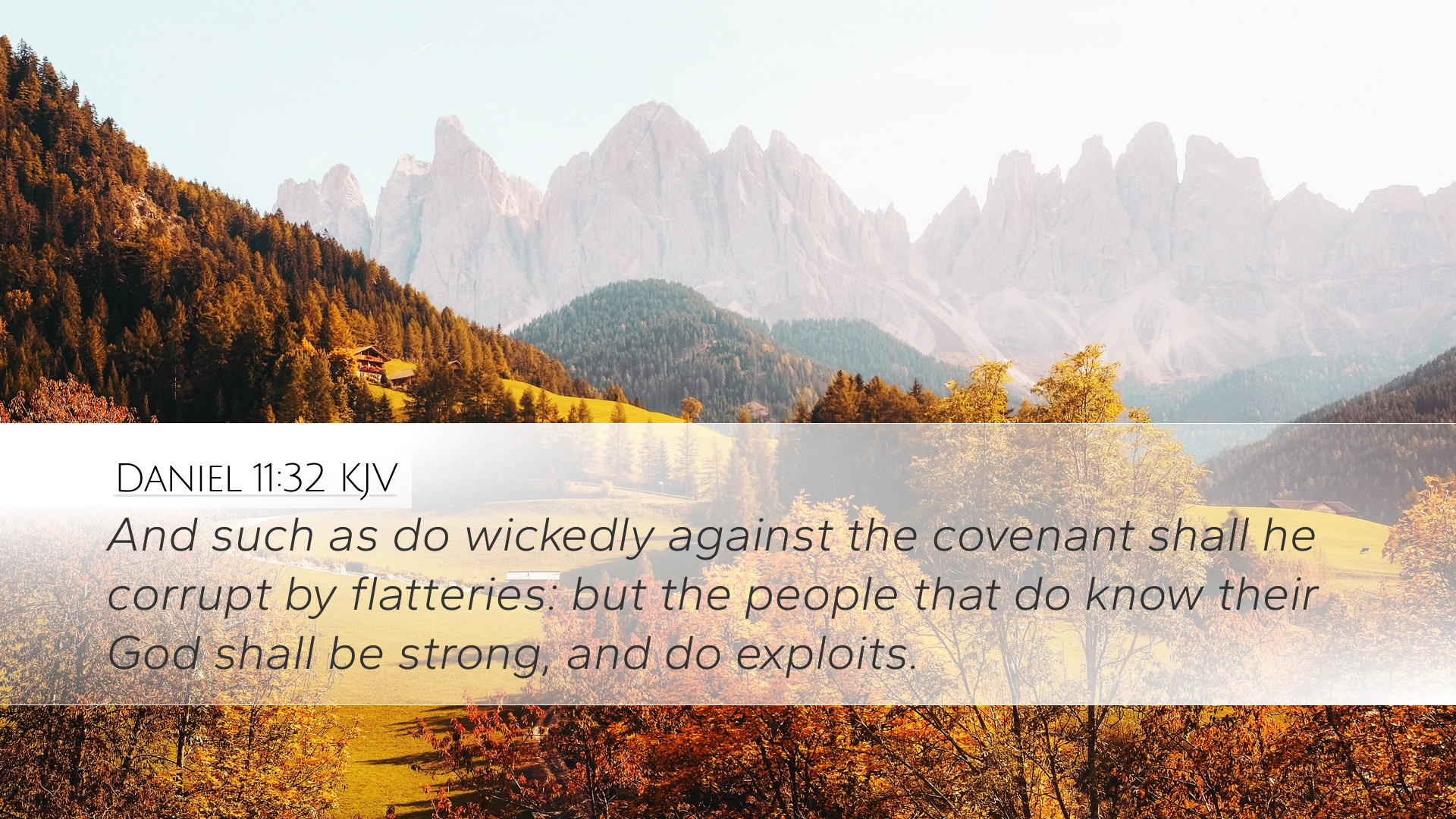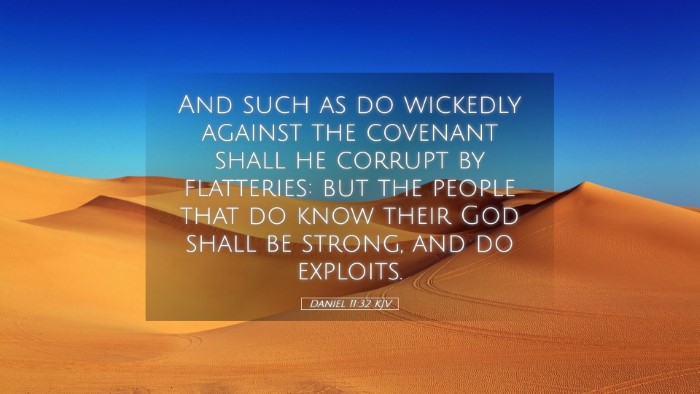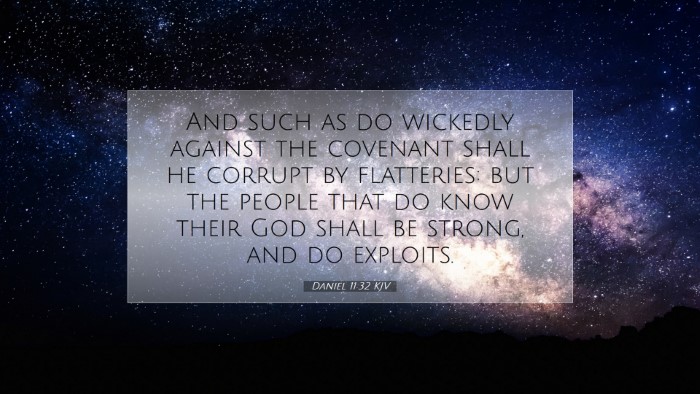Commentary on Daniel 11:32
Verse: "And such as do wickedly against the covenant shall he corrupt by flatteries: but the people that do know their God shall be strong, and do exploits."
Introduction
Daniel 11:32 presents a profound insight into the conflict between faithfulness to God's covenant and the allure of worldly temptation. As we unpack this verse, we maintain a focus on its theological significance and how it applies to the lives of believers. The commentary draws from renowned public domain sources, providing a well-rounded examination suitable for pastors, students, and theologians.
Contextual Background
The broader context of Daniel 11 describes the struggles of the Jewish people under foreign dominion, focusing particularly on the conflicts between the Seleucid and Ptolemaic empires. In this struggle, the fidelity of God's covenant people is under constant threat from external influences and internal compromise.
Historical Context
Historically, Daniel 11 has been interpreted as a prophecy about the end times, reflecting the challenges faced by the Israelites during the Maccabean revolt and the subsequent Hellenistic influences. Understanding this historical backdrop allows us to appreciate the gravity of the choices faced by God's people as articulated in this verse.
Analysis of Key Elements
The Corruption of the Wicked
“Such as do wickedly against the covenant” refers to those who turn away from God's standards and embrace moral decay. Matthew Henry asserts that such individuals are often tempted by flatteries—a seduction of speech designed to lead them astray. This highlights a significant truth: those who abandon divine principles are vulnerable to manipulation and deceit.
The Role of Flatteries
Flatteries can take various forms, from societal pressures to false promises of prosperity. Albert Barnes emphasizes that to corrupt means to lead away from truth and righteousness, casting these individuals deeper into spiritual ruin. The use of flatteries signals a strategic approach by antagonistic forces, echoing the serpent's tactics in Genesis 3 where deception was employed to entice Eve into sin.
The Resilience of the Faithful
In contrast, Daniel 11:32 affirms that “the people that do know their God shall be strong, and do exploits.” This statement asserts a powerful promise: knowledge of God equips believers for strength and acts of valor. Adam Clarke notes that the phrase “do exploits” signifies undertakings of great consequence, which can manifest in acts of faith, courage, and unyielding stand against oppression or injustice.
Strength through Knowledge
The knowledge of God is foundational to the strength expressed in this verse. Matthew Henry points out that it is not mere intellectual knowledge but a relational and experiential understanding that enables believers to stand firm in their faith. This knowledge fosters a resilient spirit that persists despite challenging circumstances.
Spiritual Exploits
Spiritual exploits encompass many forms of righteous actions in alignment with God's will, including evangelism, service, or resisting sin. Clarke affirms that true exploits arise from a heart committed to God, demonstrating that real strength is manifested in faith-driven works.
Implications for Contemporary Believers
Discernment in a Flattering World
As modern-day believers, we find ourselves in a society rife with flatteries that challenge our commitment to God's covenant. Both Barnes and Henry urge the necessity of discernment, as the allure of worldly success often comes cloaked in appealing language and expectations. Therefore, vigilance in our faith becomes paramount.
The Importance of Relationship with God
In cultivating a deep and intimate relationship with God, believers can stand confidently against dubious influences. The knowledge of God is a protective armor that cultivates resilience and empowers individuals to act boldly for the advancement of His kingdom.
Conclusion
Daniel 11:32 serves as a call to all recipients of grace to steadfastness and courage. The stark contrast between corruption and divine strength underscores the necessity of knowledge of God amidst a world filled with temptations to compromise. As we meditate upon this passage, may we underscore the importance of nurturing our relationship with God, committing ourselves to His covenant, and undertaking bold acts of faith in our communities.


